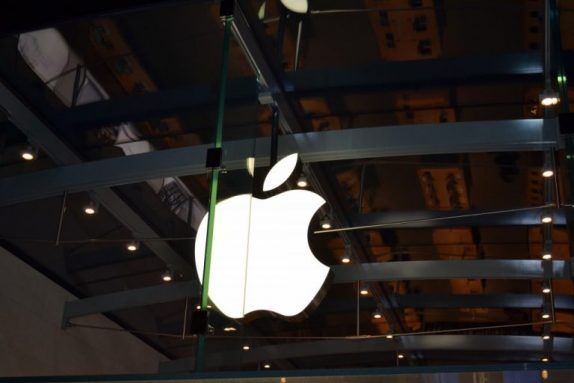

According to Apple’s operating chief COO Jeff Williams testimony in the ongoing legal battle with Qualcomm, the company wanted to use Qualcomm’s 4G LTE modems in its newest iPhones, but the chipmaker wouldn’t sell to it. This had a major effect on how quickly Apple can make the shift to 5G.
Qualcomm, however, continues to provide Apple with chips for its older iPhones, including the iPhone 7 and 7 Plus, Apple COO Jeff Williams said during the US Federal Trade Commission’s trial against Qualcomm. However, the San Diego chipmaker won’t provide Apple with modems for the newest iPhones since both the companies began their fight over patents. Jeff Williams believes the royalty rate Apple paid for using Qualcomm patents $7.50 per iPhone is too high.
The FTC has accused Qualcomm of operating a monopoly in wireless chips, forcing customers including Apple to work with it exclusively and charging excessive licensing fees for its technology. FTC has also said that Qualcomm forced Apple to pay licensing fees for its technology in exchange for using its chips in iPhones. The trial started on Jan. 4 in US District Court in San Jose, California. Testimony covers negotiations and events that occurred before March 2018.
Apple relies on third-party chips for network connectivity. Qualcomm has been the sole supplier for iPhones from 4S to 6s and 6s Plus in 2015. However, the following year, Apple started using Intel modems in some models of the iPhone 7 and 7 Plus, but it still used Qualcomm in versions for Verizon and Sprint. The Apple’s latest iPhones; the XS, XS Max, and XR, now only use Intel 4G chips and the upcoming 2019 iPhones will only use Intel chips something that will make Apple late to the 5G bandwagon as Intel’s 5G modem isn’t expected to hit phones until 2020.
Jeff Williams said he contacted Qualcomm CEO Steve Mollenkopf to get him to sell chips to Apple. When Qualcomm refused, Apple had to call Intel’s CEO, Brian Krzanich, to ask him to supply all modems needed for the iPhone instead of only half the volume. Williams’ comments appear to contradict testimony from Qualcomm’s Mollenkopf from Friday. He said on the stand that as of spring 2018, Qualcomm still was trying to win a contract supplying chips for iPhones but that it hadn’t “had any new business” from Apple since its previous contracts expired.
The FTC, aided by Intel and Apple, filed suit two years ago arguing that Qualcomm has a monopoly on modem chips and harmed competition by trying to maintain its power. The trial has revealed the inner workings of tech’s most important business, smartphones, showing how suppliers wrestle for dominance and profit. While Qualcomm is battling the FTC in court, it’s also facing off against Apple.
The iPhone maker thinks it should pay a fee based only on the value of Qualcomm’s connectivity chips, not the entire device. It says that Qualcomm is “effectively taxing Apple’s innovation” and that Apple “shouldn’t have to pay them for technology breakthroughs they have nothing to do with.” Qualcomm, meanwhile, says the iPhone wouldn’t exist without its technology.
On Friday in the trial, Tony Blevins, Apple’s vice president of procurement and a witness for the FTC, testified that Apple wanted to build an Intel communication chip into its iPad Mini 2, released in fall 2013, but Qualcomm’s business methods crushed the plan. Apple didn’t like relying solely on Qualcomm for modem chips, he said. But in exchange for exclusive use of its chips, Qualcomm offered Apple rebates that reduced costs, so they were no longer “exorbitant,” a deal that pushed Intel out of the iPad Mini 2.
Apple wanted to pay $1.50 per device in royalties to Qualcomm, based on a 5% fee for the cost of each $30 modem connecting iPhones to mobile networks. Instead, it ended up paying $7.50 per phone, Williams said. But Apple agreed to the rate since it was lower than what Qualcomm wanted to charge the contract manufacturers which would equate to about $12 to $20 per device, Williams said. A rebate agreement dropped that to $7.50 per iPhone.
Williams said as he explained why Apple signed another licensing agreement said: “We were staring at an increase of over $1 billion per year in licensing, so we had a gun to our head. The alternative was if you don’t accept it, it just defaults to the contract manufacturer rate of $18, $17. We needed their chip supply. If we tried to pursue them legally, we wouldn’t have access to the chips. We didn’t have a lot of options.” The FTC likely will rest its case Tuesday and then Qualcomm will present its defense.
